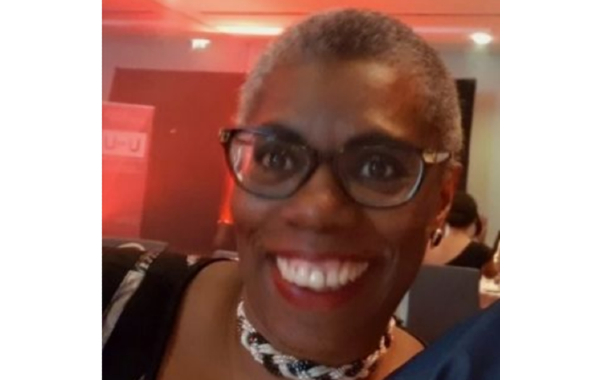
Following coaching from Result CIC via George House Trust, Yvonne Richards writes about her experience as a woman with HIV.
Hello, my name is Yvonne Richards. I am a woman living with HIV and I am invisible to many people. I remember doing a presentation in a school, where the students and their teacher admitted they didn’t know that women could get HIV. We can and we do. Some of us will acquire it and some of us will be born with it. All of us will have to navigate how we live with it.
For women HIV has become a health issue woven into other inequalities like poverty and relationship violence. It is the leading cause of death worldwide among women of reproductive age, and half of adults worldwide living with HIV are women. HIV is exacerbated for women as they, globally, continue to fight for basic human rights.
Historically, attempts to understand HIV transmission became woven into prejudiced sexual attitudes. Political delays had a negative impact on both men and women, but these delays were heightened for women because those who were most affected, often, were the least likely to have a voice.
Early stories of women living with HIV were stories of the “undeserving and immoral” at the margins of society; sex workers, injecting drug users and low-income ethnic minority women. Implicitly, serving as a morality tale about the worth and value of women. Conversations about the effects of HIV in women were silenced and shamed-delaying testing and treatment for all women. To this day, inclusion of women in HIV clinical trials is lagging, and women-centred prevention interventions remain in the developmental stages.
Social myths judging women as either virgins or whores has created a sexual double standard where women believe that being monogamous is a celebration of their worth and a protection against sexual diseases. However, believing they were in the least risk group has led to many being diagnosed late or at the time of pregnancy. Without access to support services many must cope with the mental and emotional fallout of their diagnosis, their relationship and fears for their unborn child. Fear of infecting the baby, shame, violence and fear of violence become internalised and a means of control keeping many women silent.
In contrast, although largely unrecognised, women have always been present in the fight against HIV/AIDS. In 2012, Terri Wilder published an article starting from 1983 detailing the accomplishments of women, (medically, politically and socially) in response to the HIV pandemic (1).
This matters, because if our contributions are not included we remain invisible, incapable and unworthy. We are seen as passive victims; our needs are not met and social perceptions remain shaped outside of us without our consent. In the UK positive women have no high profile, positive female role models and stories whether positive or negative in the media focus on a masculine experience of HIV. This leaves women and children born with HIV struggling for role models they want to relate to. If we are to end stigma and discrimination the human face of HIV should reflect the multiple experiences of those who live with it as the long-term manageable illness that it is.
It has taken a long time for me to understand that HIV was not a measure of my inherent worth. I’ve had to do a lot of research and needed a lot of emotional support. I think I’ve been incredibly lucky, and I will always be grateful to those who saw beyond the diagnosis. However, I know there are so many women who are not as fortunate, and I am conscious that social attitudes to HIV remain largely unchanged since the 80s.
This being the case, I am using my experience to be a voice for change. I mentor women individually and in groups, so they develop resilience and self-compassion. I am a volunteer with George House Trust as a Positive Speaker and as part of this group, I tackle stigma and discrimination by talking about HIV and the perceptions of people who have it. We also talk to GP and healthcare professionals about symptoms of HIV to support earlier diagnosis and encourage patient-centred care and dignity. I have offered my knowledge on commissioning boards and community organisations so that services consider the needs of HIV women. I am proud of my involvement in the Catwalk4Power which supports Positive Women to become about their bodies and living with their HIV status.
My life has been turned around; I want to share this. I am Yvonne Richards and I am a woman who lives positively with HIV.
Yvonne Richards is a volunteer at George House Trust where she supports women with HIV. She is part of their Positive Speakers Programme and is a Peer Mentor for people who need support with their diagnosis.
Useful Links to Additional Information
Terri Wilder The Body Magazine
Athena network
Medical response injection
Medical response microbicides
International Women’s Day and HIV awareness
Support Organisations
Sophia Forum
Salamander Trust
The Well Woman Project
PositivelyUK
George House Trust
BHA
HIV Scotland
THT
NAZ
Positive East
National Aids Trust
Information
NAM
Ibase